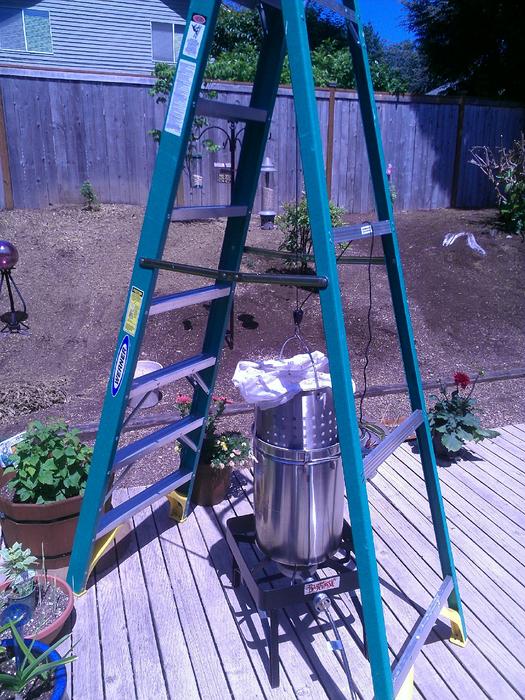illomenbrewery
Well-Known Member
Hey whats going on guys I have a noob question, but I am new to BIAB. I want to BIAB using my 7.5 gallon kettle, but from what I have read and seen I think I would be mashing/boiling pretty close to the top of my kettle. What would you recommend? Should I just take 1 gallon of water off of the boil recipe and add it in when transferring wort to carboy (pretty much like when extract brewing)? I do have a burner I use outside for brewing. I would be brewing different styles of beer from low to high gravity.
Thanks for the help!
Thanks for the help!












































![Craft A Brew - Safale S-04 Dry Yeast - Fermentis - English Ale Dry Yeast - For English and American Ales and Hard Apple Ciders - Ingredients for Home Brewing - Beer Making Supplies - [1 Pack]](https://m.media-amazon.com/images/I/41fVGNh6JfL._SL500_.jpg)













